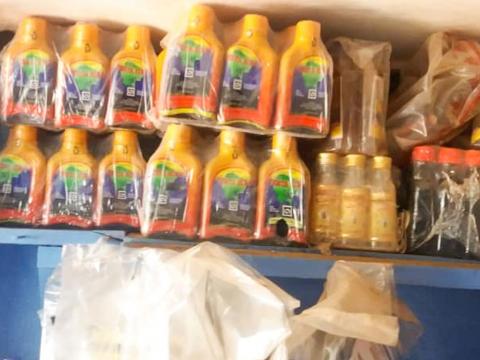By Hajaratu Kalokoh
As the world marks October 2nd as No Alcohol Day, the Director of Non-Communicable Diseases and Mental Health at the Ministry of Health and Sanitation (MOHS), Dr. Santigie Sesay has told Politico that government is yet to have any policy to control alcohol in the country. His remarks highlights the challenge the country faces with alcohol consumption.
“Honestly we have not been doing much on alcohol control in particular, not until recently when we developed the alcohol control technical working group which comprises different partners or people who have a stake in the management and control of alcohol,” Sesay said.
The Technical Working Group comprises different ministries including the Ministry of Education, Social Welfare, and Youth Affairs. Other stakeholders in the group include Police, Law Officers Department and NGO groups like the Sierra Leone Alcohol Policy Alliance.
World No Alcohol Day was declared by World Health Organization (WHO) in 2008. Every year the day is used to raise awareness on the dangers associated with alcohol consumption. Long term consumption of alcohol causes health complications like liver damage, mental disorder, low eye vision, cancer, maternal morbidity and for pregnant women it leads to giving birth to pre-matured babies.
The immediate effect of alcohol consumption is drunkenness.
WHO statistics show that there are 2.5 million alcohol related deaths every year, globally. Some 320, 000 of those who die are young people between the ages of 15 and 29.
In Sierra Leone, Dr Sesay said a recent study by the Ministry of Health in 2018 show that 17% of adults between 24 and 65 consume alcohol.
From Dr. Sesay explanation to Politico, there seems to be no headway now on what exactly government wants.
A recent meeting which was held by the technical group ended in a stalemate.
“We have not even agreed on whether we want to do a policy or a bill. The last time we had a meeting, the Law Officers Department was advising that instead of going for a policy which will be for the Ministry of Health’s implementation, it is better we go for a bill that will be general. So, we have not yet agreed whether we want to do a policy or a bill but again that will depend on available resources. So, I cannot tell you what the policy will look like’, Dr. Sesay said.
In Sierra Leone, alcohol consumption is common among young people. Victor Keita, 18 told Politico that he has had experience with alcohol in the past. He said the major influence of consumption among young people like him is the fact that alcohol is cheap, noting that despite his experience he is now fully aware of the dangers to his health.
“So, for alcohol not to be consumed there are strict laws that should be applied towards tackling the problem, especially among the youth. Some kids inculcate the habit of drinking alcohol from their parents. I may say consuming alcohol is not good for our health and it also affect our education,” Keita said.
In Sierra Leone, alcohol is as cheap as Le1000. Any law or policy will struggle to function well under the current circumstances.
The Sierra Leone Alcohol Policy Alliance is a consortium that has been constantly working to have a policy on alcohol. The National Coordinator, Alhassan Jalloh, told Politico that they will continue to engage government and sensitize people about the dangers of alcohol.
Jalloh said that since the establishment of the organization they have been directly working with the directorate of Non-Communicable Disease and Mental Health to advocate for a national policy on alcohol. He said getting a contemporary law to address issues surrounding alcohol is crucial.
He said: “We are in this advocacy to have an alcohol policy in Sierra Leone because we have no effective law that address alcohol production, distribution, marketing and consumption in Sierra Leone.”
“The law we have on alcohol control is the 1924 Liquor Act. So just see, way back in 1924 that is the law we have. The items that we have in this Act does not really address contemporary issues on human development and educational development,” Jalloh added.
As part of their work on this issue, Jalloh said they will commemorate this day with awareness raising in slum communities and other areas across the country.
© 2019 Politico Online









